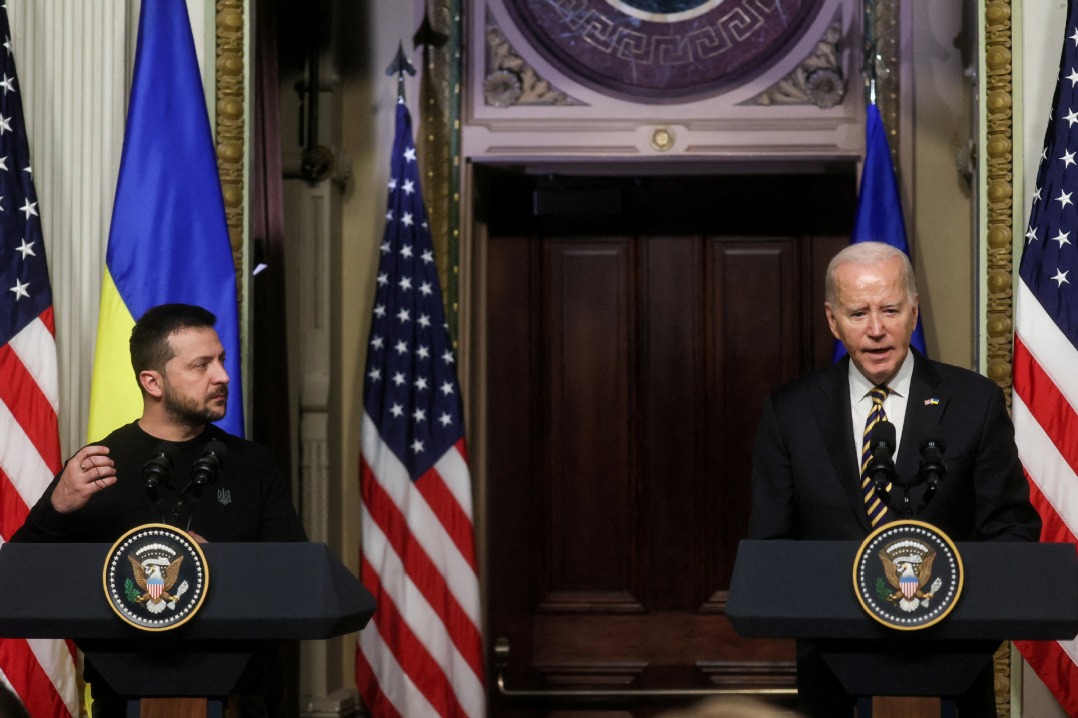Investment flows hit as US, China ties sour
By BELINDA ROBINSON in New York | China Daily Global | Updated: 2020-09-23 11:00
Pandemic also to blame as companies retreat from cross-border ambitions
Two-way capital flows between the United States and China declined to a nine-year low in the first half of 2020 even though the level of direct Chinese investment in the US rose because of tech giant Tencent, a recent report said.
Escalating political tensions and the economic fallout from the coronavirus pandemic affected the investors.
Combined direct and venture capital investment between the two countries totaled $10.9 billion in the first half of this year, the lowest level since the second half of 2011, according to the report by the National Committee on United States-China Relations, or NCUSCR, and Rhodium Group, an independent research firm in New York.
The total value of completed Chinese direct investment in the US rebounded to $4.7 billion in the first half of 2020 when compared with the same time last year, when it was $3.4 billion.
The level of Chinese foreign direct investment, or FDI, would have been lower if it weren't for one deal, Tencent's $3.4 billion purchase of a minority stake in Universal Music Group. FDI is long-term investment and acquisitions.
US FDI flows into China were $4.1 billion, a year-over-year drop of 31 percent. The number of completed investment transactions also remained low.
The report was co-written by Thilo Hanemann, a specialist in global trade and investment for Rhodium Group. Addressing the reduced investments by Chinese companies into the US, Hanemann said: "This is a global phenomenon. Chinese companies are staying home, are consolidating their balance sheets and taking a wait-and-see approach, and the US is a reflection of that."
The data also showed that the reduced transactions were, in part, because of US President Donald Trump's "restrictive set of US policies especially in the technology sector".
However, it noted that while China's response to "aggressive US policies has been restrained, US investors could face a backlash if relations continue to sour".
Trump's restrictions on Chinese companies-including the order for ByteDance to sell the US operations of the popular social media app TikTok-could be detrimental for long-term business, the panelists said.
Room to expand
Hanemann said: "From a structural, secular gross outlook, there is just a lot of room to expand and invest in both directions, but the systemic divergence and conflicts that we are seeing, those are not likely going to be resolved soon."
The report was discussed at a digital event hosted by the NCUSCR on Sept 17. Hanemann was joined by report co-author Adam Lysenko, an expert on assessing China's international investment flows and related policy dynamics and an associate director at Rhodium Group.
Other attendees included Daniel Rosen, a founding partner of Rhodium Group, and Steve Orlins, president of the NCUSCR.
The report examined the pandemic's impact on US investments in China this year. In the first half of 2020, US companies reduced new investments in China but continued with existing acquisitions.
Some US politicians were concerned that Chinese companies would buy up large, distressed US assets amid the pandemic, but that has not materialized.
Chinese venture capital activity in the US has remained stable, but total investment dropped to a six-year low.
There was an estimated investment volume of $800 million-the lowest total since 2014. The health and biopharmaceutical sectors accounted for about 50 percent of the total transaction volume.
Lysenko said at the event: "Some (Chinese) venture investors have slowed their US venture programs, and some have started investing into other markets. And some have made the decision to completely divest of their US holdings."
US venture capital investment in China hit its lowest level in four years as the technology sector slowed. US investors put just $1.3 billion into Chinese startups in the first half of this year.
Hanemann said: "We have to look at US policy and politics as well, and looking at the past six to 12 months, there were a number of policies in Washington that have put greater scrutiny on Chinese investments and companies operating in the US market."
The panelists said that the result of the US presidential election on Nov 3 would likely determine the outlook for US and Chinese investment.























